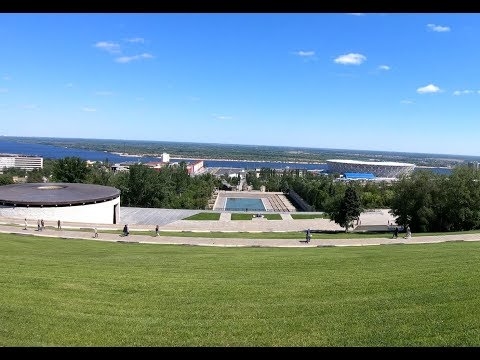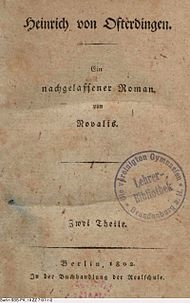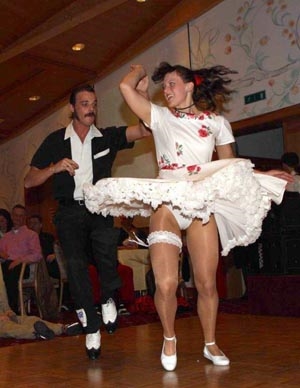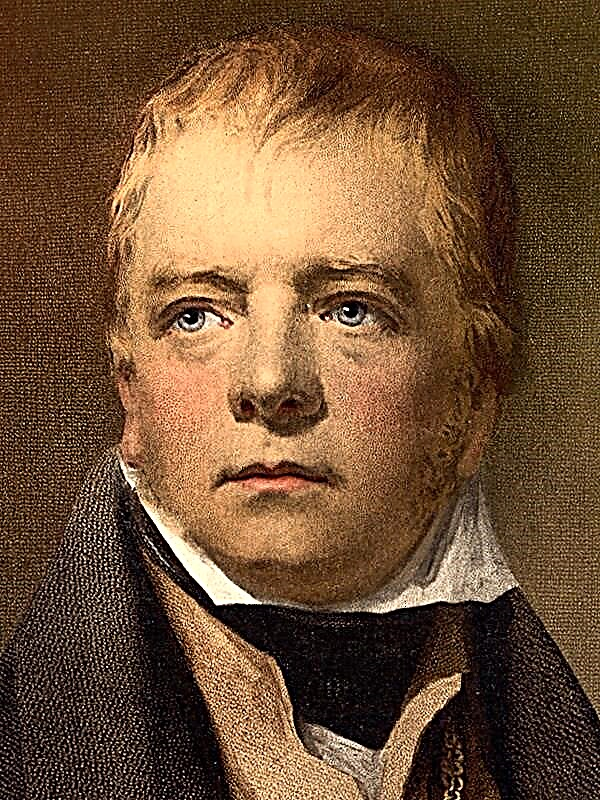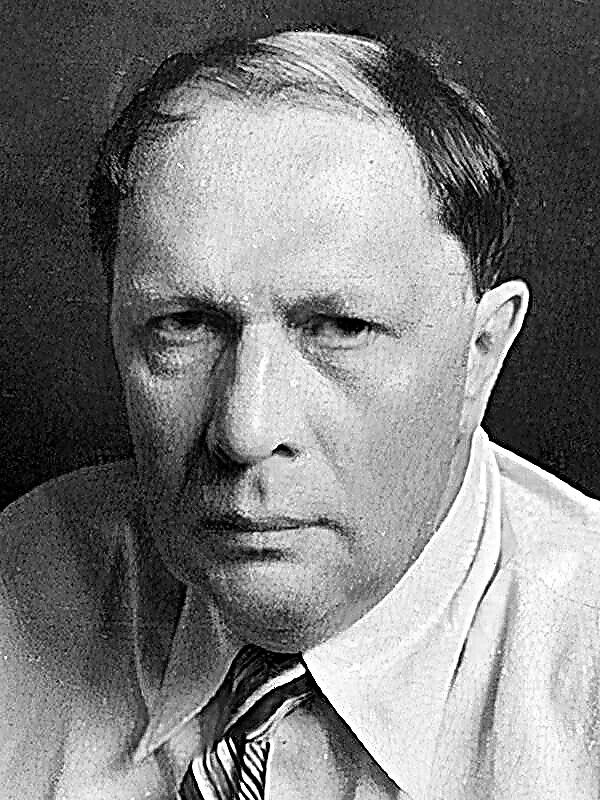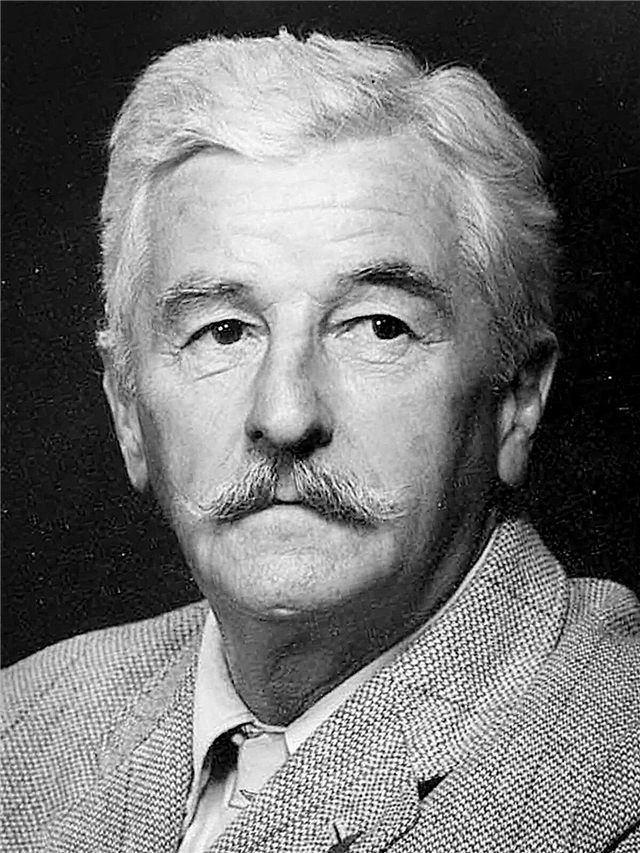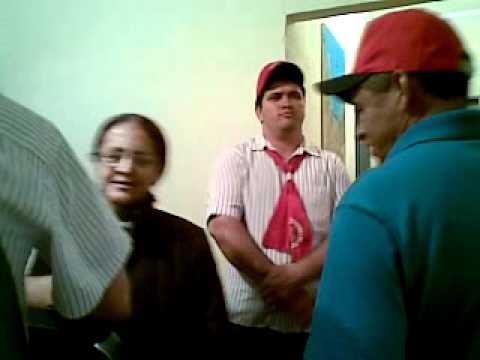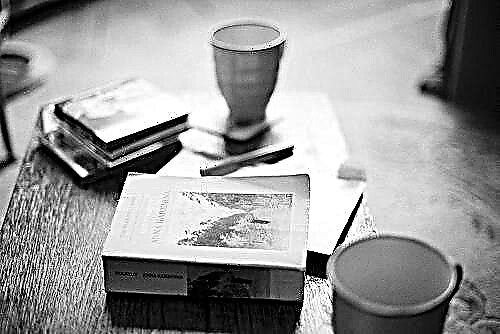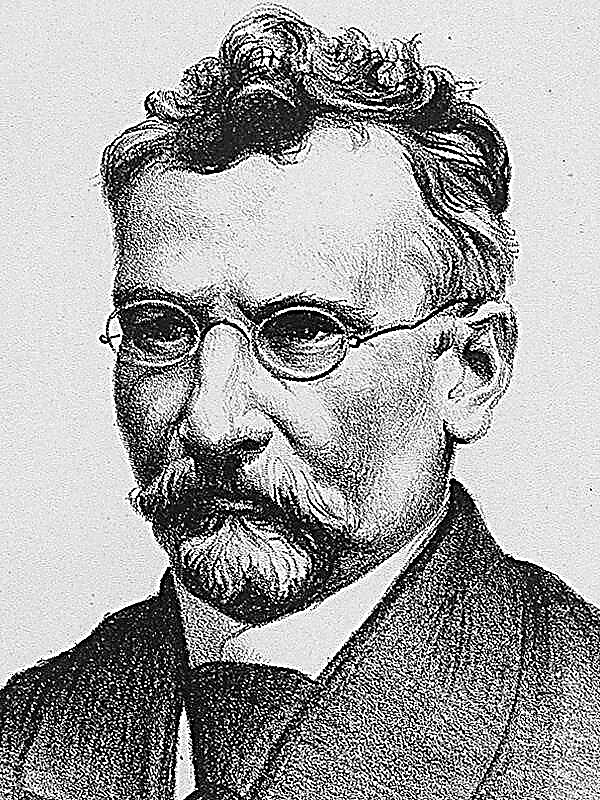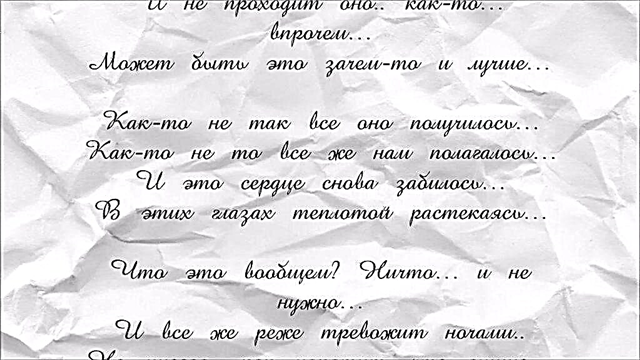The young Count Federigo Confalonieri is the recognized idol of the secular youth of Milan. They listen to him, imitate his clothes and habits, and his skill in fencing, dancing and horseback riding is a universal admiration. The count is smart, perceptive, ambitious, imperious posture and proud grace of movements are characteristic of him, and the brilliant look of his "unique" dark blue eyes does not leave indifferent any woman.
Recently, the count has been seized with a feeling of dissatisfaction and anxiety. He clearly understands this at the ball, which was attended by the Viceroy of Italy, Eugene Bogarne, stepson of Napoleon I. Federigo leaves the festival, unable to share the enthusiasm of his compatriots, such as he, arrogant aristocrats who bowed to the "young to the Frenchman imposed on him by sovereign. ” The Italians, “the noblest of the cultural nations,” experience foreign violence and oppression. He, Federigo, had not yet done anything worthy of respect, had done nothing for his native Lombardy, Milan. Confalognieri decides not to accept any court posts and devote himself entirely to self-education and service to the nation. He insists that his modest beauty wife Teresa leave the princess' court position.
At thirty, the count leads the party, which aims to achieve the creation of an independent nation-state. By this time, the fall of Napoleon. While the Milanese destroyed the remnants of Napoleonic power, the Allies managed to divide Italy among themselves. Lombardy and Venice become Austrian provinces ruled by Emperor Franz I.
Confalonieri's efforts are unsuccessful. He does not forgive himself for not being able to correctly assess the situation on time. In addition, rumors reach him that he is reputed to be the instigator of a popular anti-French rebellion, whose victim was the Minister of Finance. Federigo distributes an article where he refutes such speculation and at the same time calls himself a man who has never been a slave to any government and never will be. Gradually, the Count incurs the wrath of Franz.
Confalognieri leaves for London, where he meets the English political system. His charm, lively mind and restrained manners conquered everyone and opened him access everywhere where enlightenment and love of freedom reigned. The name Confalonieri has already begun to mean something in the liberal circles of Europe.
In Milan, among his supporters were almost everyone who was distinguished by intelligence and noble aspirations. Federigo and other patriots are developing education and industry in Italy: they are opening public schools, publishing a magazine - the famous Conchigiator, organizing steamboat traffic along the Po River, introducing gas lighting in the streets.
In the years 1820-1821. anti-Austrian uprisings erupt in parts of Italy. Federigo recognizes his responsibility for a cause for which they endanger the lives of young people. But he cannot lead the uprising, as he experiences the first severe nervous breakdown. After the defeat of the speeches, some of the participants escaped, many were arrested and were under investigation. In Milan, they believe that the emperor decided only to intimidate the rebels, no one expects harsh sentences. According to Federigo, he and his comrades have not yet committed anything illegal, "their hands touched the sword, but did not raise it." Federigo is ready to answer for his ideas and intentions.
In the capital, more and more arrests are expected. Federigo advises his friends to leave the country; he himself, despite the police searches in the house, the persuasion of his wife, persistently arrogant. He does not realize that he is especially dangerous to the government as a herald of the idea of national liberation. On the last night before the arrest, Federigo And Theresa secretly arrives at the wife of their friend, an Austrian field marshal, to immediately take them abroad in their carriage. The "stubborn will" of the count opposed here, he postpones departure for the morning. But the police, led by the commissioner, arrive earlier.
In prison, Confalonieri is most depressed that one of his friends, Marquis Pallavichino, has already testified against him. Federigo did not expect betrayal. During interrogations, he keeps himself independent and restrained, denying everything that could bring danger to himself or others.
Federigo for the first time begins to reflect on the suffering that he inflicted on his beloved wife. He was an involuntary cause of the tragic death of their young child. The Count understands how difficult it was to endure Theresa’s authority, jealousy and indifference of her husband. Federigo showed his inclination and sympathy for many women and only moved away from Theresa and paid cold appreciation for her unobtrusive devotion. Now, in prison, his wife’s letters received secretly in programs with linen become a joy and comfort for him. Federigo is sure that they are still destined to be together, and then he will devote himself wholeheartedly to her happiness.
During interrogations, judges try to obtain confession from Confalonieri, to expose him as high treason. This is what the emperor wants, entrusting the investigation to the most experienced and ambitious judge, Salvotti.
After a three-year trial, the Supreme Court upholds the death sentence of Confalonieri, all that remains is to send the sentence to the sovereign for signature. Salvotti advises the count to be humble and ask for clemency, this can mitigate the "just anger" of the monarch. Federigo writes a petition with the only request - to order the execution of his sword. The emperor refuses - the rebel has no rights, including the kind of execution.
The fear of death seizes the count, not seeing his wife, not repenting of his guilt before her. He goes against his rules, turning to Salvotga with a request to allow him the last date. The harsh judge experiences the “captivating power” of Federigo’s voice and gaze. He also breaks the rules by informing the count that Teresa, together with her brother and father Federigo, went to Vienna to the emperor with a request for pardon.
The Austrian monarch replaces Federigo's execution with life-long strict imprisonment. Other patriots are doomed to less severe conditions. Franz did not want to make martyrs and heroes of Italy out of his enemies, it was more profitable for him to show mercy.
Sentenced sent to the provincial fortress Spilberg in Moravia. After a farewell meeting with Theresa and father, Federigo loses consciousness.
On the way to the fortress in Vienna, Confalonieri was given the unexpected honor of meeting with Prince Metternich, whom he had met before in society. The powerful minister expected from Federigo certain confessions, testimonies against other conspirators. But in the courteous speeches of the graph is categorical intransigence, although he realizes that he thereby deprives himself of his freedom. He would have received a pardon from the emperor if he was willing to pay for it with his honor.
Federigo is the oldest and most famous among the prisoners. He shares the camera with the young Frenchman Andrian, a member of the Italian movement. He worships Federigo and learns from him to cultivate the "virtues of a mature husband", to rule over himself, to neglect adversity. Tapping into the walls, and most importantly, thanks to the jailers sympathetic to him, Federigo establishes a connection with his comrades. Among them are Silvio Moretti, a member of the military conspiracy, writer Silvio Pellico, and carbonarian Pierrot Maroncelli. Federigo organizes the release of the prison magazine, for which friends compose dramas and write music. By order of the emperor, a priest is sent to prison, who is supposed to find out the innermost thoughts of prisoners. When Federigo decides to go to Communion with him, this is preceded by the great hidden work of his soul. Until now, he was always convinced not only of the rightness, but even of the necessity of his actions. He now believes that Italy needs a complete update, but he is no longer sure that he has chosen the right means. Was he entitled to risk the lives of many people? Federigo realized the cruelty of his relationship to loved ones. He imagined how the life of him and Teresa would have developed if he had “given himself the trouble to see her beautiful heart.” When the priest immediately demands that the count recall his political errors, to please the emperor, Federigo refuses communion. He is sad, and not because it will cause an even greater hostility of the sovereign, but because the beloved Teresa will be upset when the news of his godlessness comes to her in a misrepresentation.
After the priest leaves, the conditions of prisoners become much more stringent, it is forbidden to even read, Federigo suggests obtaining permission for physical labor, for example, to work on the ground. It is important to maintain the habit of useful activity, which makes a person “a god-like creature”. Everyone enthusiastically supports this idea, although they do not believe that the emperor will meet them.
At this time, the wife and friends are preparing an escape for Federigo. Together with the count one of the jailers and Andrian must flee. An escape time has already been set, and Federigo is increasingly feeling internal resistance. He cannot leave the comrades remaining in prison and indulge in happiness with Theresa. Federigo refuses to escape. Andrian understands the reason for the refusal, he sees this as one of the manifestations of the greatness of the soul of Federigo, but the jailer does not hide contempt.
The news comes about the “supportive” permission of the emperor to work for prisoners. They are instructed to pinch the lint from the canvas according to strictly established standards. This is perceived as a mockery, many resist. Federigo calls on his comrades to voluntarily agree to the inevitable evil, and thereby, as it were, rise above him. The Marquis Pallavichino declares that from now on he renounces Confalonieri. He overthrows the idol of his youth, listing all the humiliation of the count before an Austrian tyrant, starting with the adoption of a pardon. Pallavichino asks to transfer him to another prison. Federigo understands him. Of course, he could remain in the memory of young fighters a martyr and a hero if he died "with proud words on his lips." Instead, “his enslaved hands” knit woolen yarn. In Federigo’s soul flare up protest and hope, he will still be released and will fight! His experiences end in a heart attack.
Gradually release the comrades Federigo. After unsuccessful attempts at permission to move closer to Spielberg, Teresa dies. Federigo learns about this after a year and a half. It becomes clear to him that hope and joy will not come to life in him. How about dreams, he recalls his plans to “make humanity happy” when he began by rebelling against the emperor, whom, perhaps, “God himself put in this place.”
A new political prisoner is being delivered to a neighboring cell. He expresses his respect to Federigo, says that all the noble people in Italy Remember Confalonieri as the first who put forward the ideals of unity and liberation of the country and suffered for them. The young man does not accept Federigo's regrets that his actions made many people unhappy: the great is achieved only by sacrifice. In Federigo’s reasoning, he notices a kind of “senile wisdom,” the wisdom of long suffering.
Emperor Franz dies, and the new monarch replaces for Federigo and his comrades with imprisonment in America. While Confalonieri can not appear at home. After eleven years in prison, Federigo meets Spelberg with his family. They do not immediately recognize in the exhausted man the former Federigo. They do not immediately return to the column "proud posture and royal courtesy", only already deprived of their former freedom.
In America, Federigo is becoming the center of common attention, it is accepted in famous houses. But the business fuss and the pursuit of profit in this country push him away. Federigo leaves for Europe, Visits his friends. Everywhere, Austrian spies follow him as a dangerous state criminal. And in his soul and body, life energy barely glows. With friends in Paris, he meets a young Irish woman, Sophia, and marries her. After the end of the amnesty, he settles with her in Milan, in his father’s house. He shies away from society, speaks reluctantly of politics, and if circumstances force him, he clearly calls himself an Austrian subject, Federigo realizes that he "lives without living," and this is painful for him. But at times the desire to “inflate the dying flame”, to participate in the struggle, to help youth ideologically flashes in him. During one of these outbreaks, on his way from Switzerland through the Alps to Milan, in a hurry to return, driven by the desire to act, he dies of a heart attack.
The entire high society of Milan appeared at the funeral. Policemen were hiding in the crowd. In farewell, Carlo d’Adda, connected with Federigo's family and spiritual ties, rallied Around himself youth with patriotic ideals. The young speaker stated that the noble and immortal heart of Confalonieri ignited all of Italy with a fire of retaliation.

